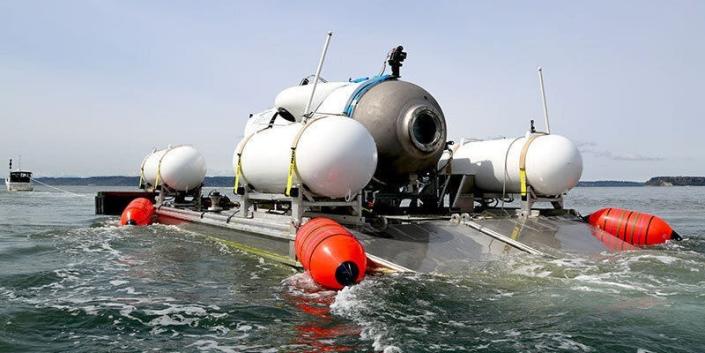
-
The Navy detected the Titan’s implosion soon after it lost contact, per The Wall Street Journal.
-
Defense officials told the outlet the Navy began listening for the vessel right after it went missing.
-
A top-secret detection system used to find enemy submarines registered the sound.
At least some in the upper echelons of the US military were aware of the Titan submersible’s fate days before the rest of the world, according to a Wall Street Journal report.
The US Navy first detected the sound of the Titan’s likely implosion soon after the vessel lost contact with its mothership on Sunday while on an exploratory dive to the Titanic shipwreck more than two miles beneath the surface, The Journal reported Thursday.
A top secret acoustic detection system that is used by the Navy to identify enemy submarines first registered the sound of an implosion near the since-discovered debris site on Sunday, US defense officials told the outlet.
Navy officials began searching for sounds from the missing Titan almost immediately after it lost contact, according to the newspaper.
“The U.S. Navy conducted an analysis of acoustic data and detected an anomaly consistent with an implosion or explosion in the general vicinity of where the Titan submersible was operating when communications were lost,” a senior U.S. Navy official told the Journal. “While not definitive, this information was immediately shared with the Incident Commander to assist with the ongoing search and rescue mission.”
The Navy did not immediately respond to Insider’s request for comment.
Coast Guard officials on Thursday said the Titan appears to have suffered a “catastrophic loss of the pressure chamber,” imploding and shattering its debris 1,600 feet from the famous shipwreck.
The five passengers’ death would have been instantaneous, Stefan Williams, a professor of marine robotics at the University of Sydney whose lab works with uncrewed submersibles, previously told Insider.
Coast Guard Rear Adm. John Mauger said at the press conference that the implosion would have “generated significant broadband sound down there that the sonar buoys would have picked up.”
Officials told the Journal that the Navy couldn’t definitively conclude that the sound detected on its system came from the Titan, but the signal helped narrow the scope of the search.
The search for the vessel prompted a massive international effort, including Canadian authorities, commercial vessels, and a French vessel that deployed a remotely operated vehicle (ROV).
The device, capable of diving 20,000 feet underwater, discovered the debris believed to be part of the missing Titan on Thursday morning.
Read the original article on Insider










